With the strike by musicians of the Detroit Symphony Orchestra in its 15th week, DSO management has launched a public attack on orchestra members. In a statement sent by e-mail January 12 to donors and sponsors, management called recent efforts by orchestra members to broaden public support by reaching out to audiences in Detroit “misguided and impulsive.”
Accusing musicians of “antagonizing long-standing DSO sponsors, board members and donors,” management lists by name members of the musicians’ union negotiating committee. It calls for public pressure on union representatives to cave in to management’s latest repackaged concessions proposal.
The proposal, which management floated in conjunction with its attack on the musicians, supposedly contains $36 million in funding. The proposal, DSO management claims, is in line with the plan advanced by outgoing Democratic Governor Jennifer Granholm and US Senator Carl Levin, which the musicians’ union has accepted as the basis for a settlement. However, management’s proposal contains no specifics. Indeed, the additional $2 million it refers to is contingent on the orchestra obtaining additional funding.
Moreover, the supposed “new” proposal maintains the DSO’s demands for sweeping changes in work rules, which it is peddling under the name of “enhanced community and educational activities.” These changes are aimed at downsizing the orchestra, reducing the number of its performances and turning musicians into part-time workers burdened with all kinds of non-performance-related tasks.
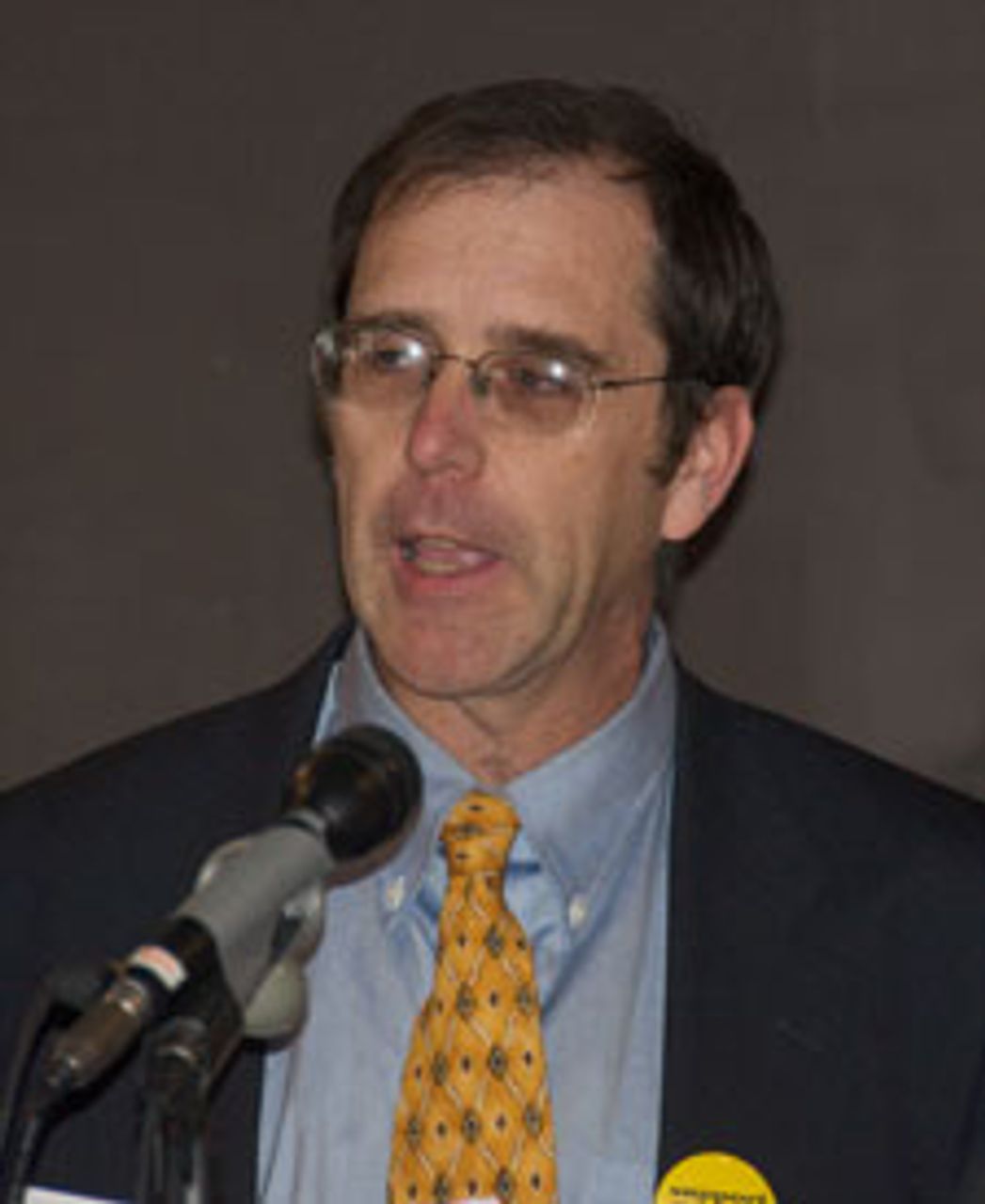 Haden McKay
Haden McKayIn a statement to the WSWS, player spokesman cellist Haden McKay denounced management’s offer, calling it “not a genuine proposal.”
The latest broadside by the DSO board follows threats by management earlier this month to cancel the remainder of the 2010-2011 concerts. DSO executive committee members are set to consider a proposal to scrap the balance of the season at a meeting later this month.
For DSO management, whose hard-line stance has led to the cancellation of 40 percent of the current concert season, to call musicians “misguided” is ludicrous. Those who are irresponsible are the highly compensated executives, including DSO President and CEO Anne Parsons, who are attempting to impose massive concessions on musicians, including pay cuts of more than 30 percent and 40 percent for new orchestra members, that threaten to destroy the DSO as a top ranked US symphony.
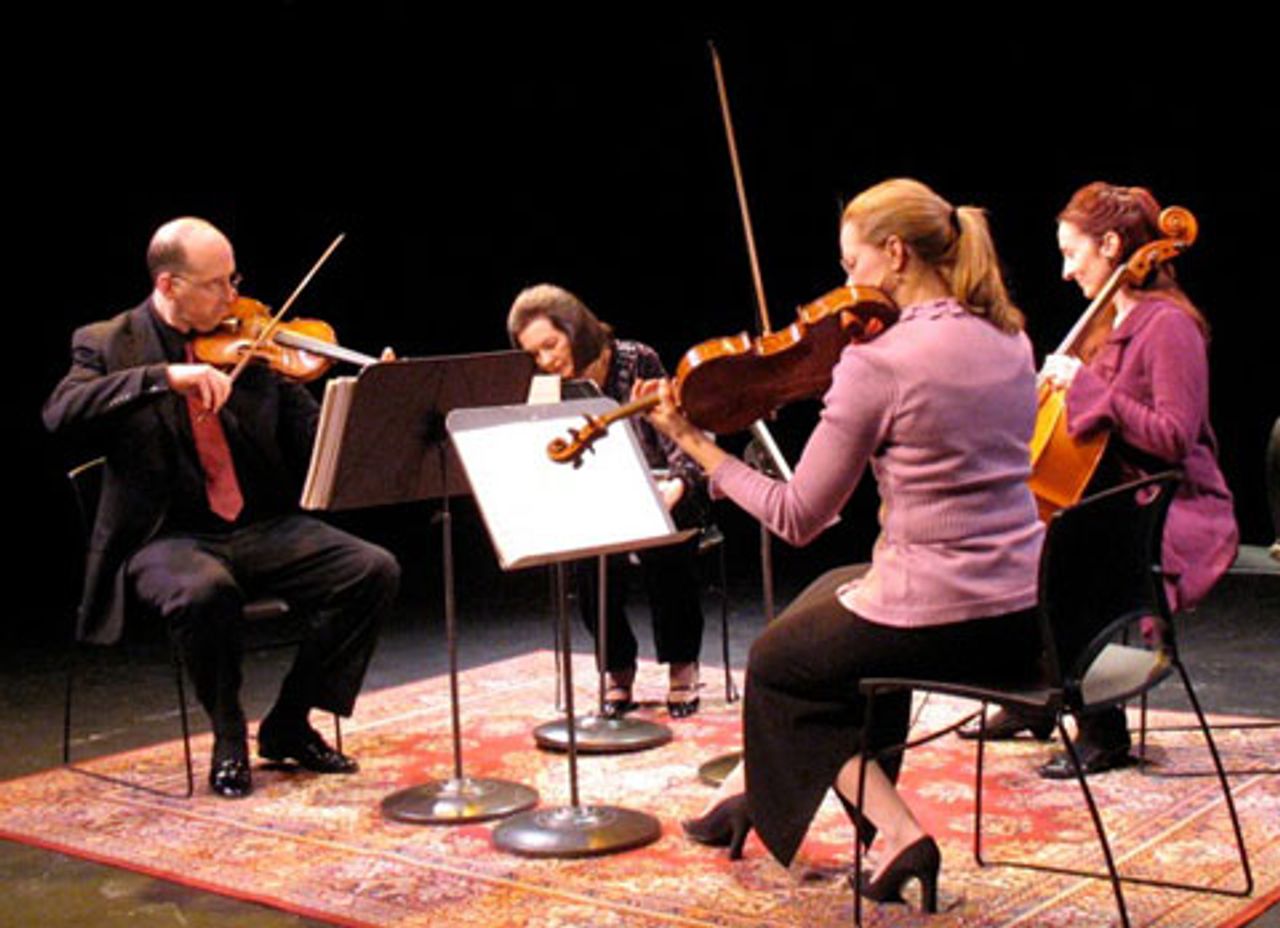 DSO musicians at free concert in Detroit
DSO musicians at free concert in DetroitBlinded by right-wing ideology, DSO management is indifferent to the incalculable harm it is causing to the cultural life of Detroit by attempting to dismantle one of the area’s most important artistic treasures.
The musicians’ union—the Detroit Federation of Musicians—has already conceded a large portion of the concessions demanded by management and is holding out for a slightly less onerous package, which they say is necessary if the DSO has any chance of attracting high caliber musicians or retaining its best talent.
Striking musicians are particularly adamant in their rejection of management’s demand for a reduction in the starting salary of new orchestra members.
The musicians have been fighting courageously for months in the face of indifference or open hostility from the entire establishment—the media, politicians and the major trade unions. They have faced enormous pressure from the Metro-Detroit AFL-CIO, the United Auto Workers and the Democratic Party establishment, including Granholm and Levin, to cave in to management demands and wrap up the strike.
No doubt DSO management has been encouraged in its attacks by the massive concessions handed over to the car companies by the UAW, including halving of the wages of new hires, and the statements of union president Bob King declaring that the UAW will do whatever is necessary to boost the profits and competitiveness of the corporations.
Meanwhile, striking musicians are continuing their effort to mobilize public support for their struggle, which is part of a broader attack on art and culture across the United States and internationally.
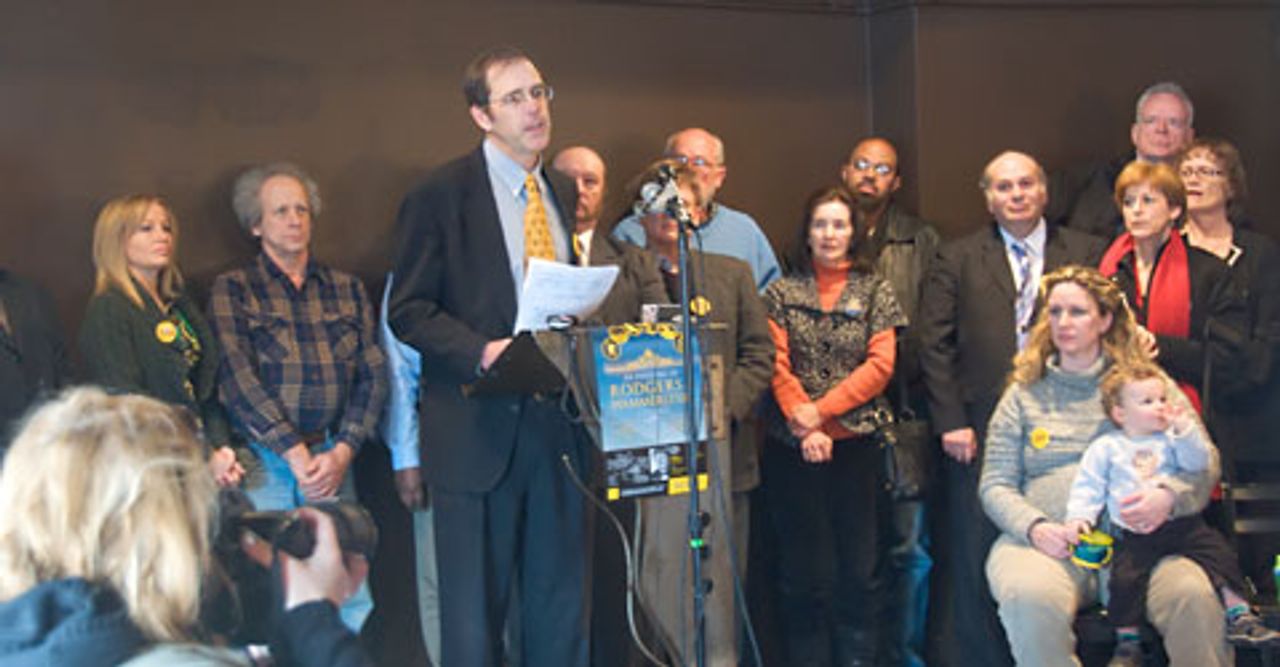 Haden McKay, spokesman for DSO musicians speaking at Detroit press conference
Haden McKay, spokesman for DSO musicians speaking at Detroit press conferenceAt a January 12 press conference at the Majestic Café in midtown Detroit, DSO musicians announced a partnership with local restaurant owners who say they have been severely impacted by a fall in patronage due to the strike. Donovan Martin of the Clubhouse Restaurant and Lounge, one of several restaurateurs who spoke, said his restaurant was losing $10-$15,000 a month. Martin told reporters that his grandfather was a member of UAW Local 600 and that he was “100 percent behind” the musicians.
DSO musicians announced that they have volunteered to provide live music to restaurant patrons in the downtown area before the next scheduled strike support concert to be held January 15 at St. Patrick Catholic Church near Orchestra Hall.
At the press conference Haden McKay, chief spokesperson for the DSO musicians, noted that management continued to pay itself full salaries, $400,000 a year in the case of Parsons, despite the fact that there is no orchestra to manage.
DSO musicians continue to win broad national and international support from fellow musicians and others, to date receiving almost $300,000 in contributions to their strike fund.
A free performance by DSO string players at the Bolls Family YMCA in downtown Detroit last weekend drew an enthusiastic audience. The quartet, comprised of Beatrice and Greg Staples, violin, Caroline Coade, viola, and Una O’Riordan, cello, played a variety of classical selections, including Mozart’s Quartet in A Major, K. 464, one of the “Haydn” quartets, and Tango por Una Cabeza by Carlos Gardel.
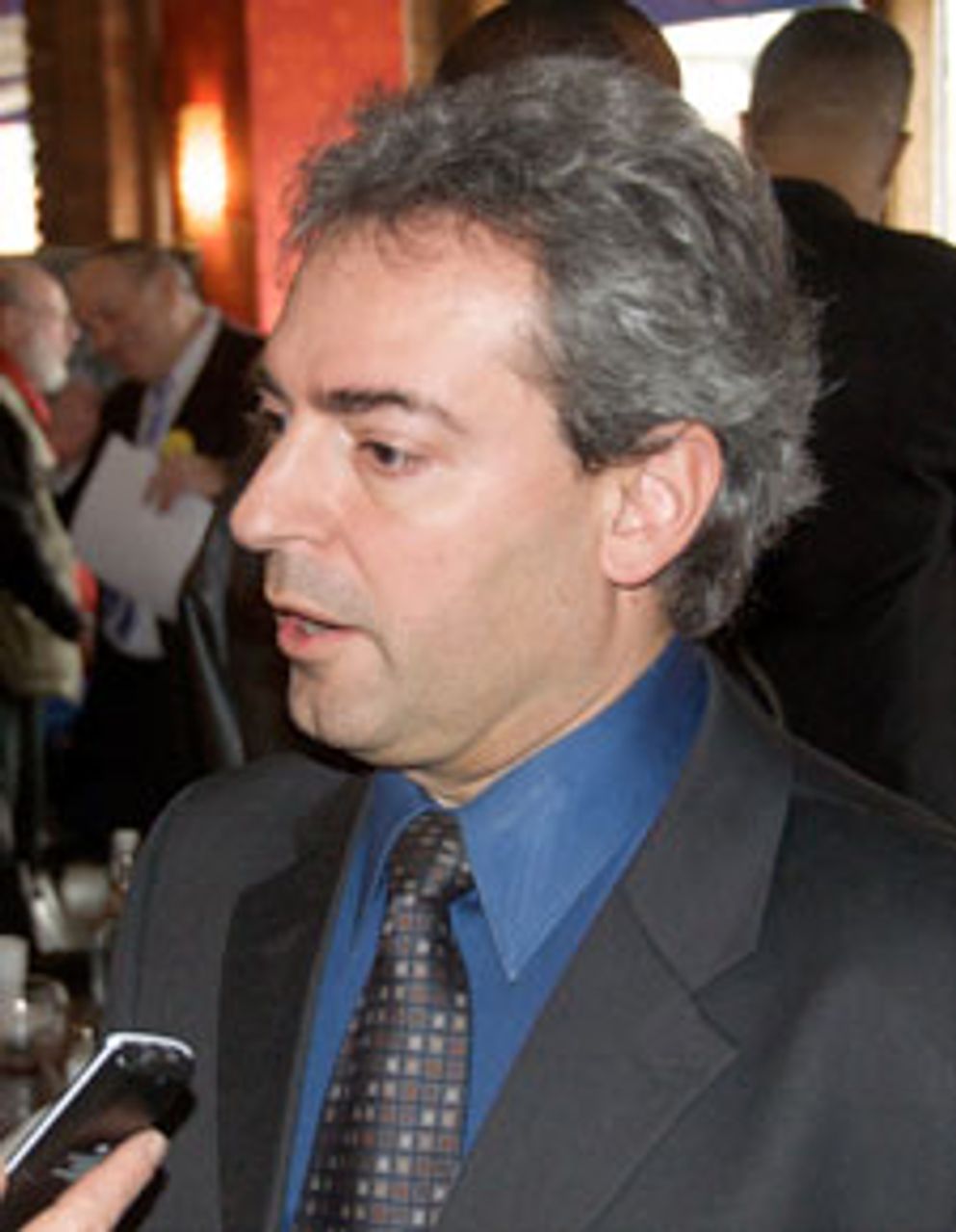 Marian Tanau, DSO violinist
Marian Tanau, DSO violinistThe World Socialist Web Site interviewed DSO violinist Marian Tanau following the January 12 press conference. “I am very happy that we had this press conference. It shows that we are all united here, trying to make Detroit a better place. We have a great orchestra that will disappear with the course of action that they are following. They don’t want to respect the musicians and encourage them to stay here. Everyone will suffer, as we heard that from the (restaurant) owners today.
“I am from Romania. I immigrated in 1990 to the US. The quality (of the DSO ) was top for the major orchestras for which I auditioned. It had a historic background that I knew about since I was a little boy in Romania. It was an honor for me to step on the stage and perform with great conductors like Neeme Järvi and Paul Paray. And I am still honored to represent this orchestra today.
“I think that arts are always overlooked. If you were to go into Europe right now as a tourist, the first thing you want to do is see objects of art that were created by amazing people. I think the fight is about that, about what is going to happen to future generations. Who is going to see a work of art if the DIA (Detroit Institute of Arts) were to disappear? We need art to be supported. You don’t see rewards right away like you do investing in the stock market, but it is a long-term investment for future generations. Luckily, in Europe there is a lot more support for the arts from a government perspective than in the US.”
The WSWS also spoke to those attending the January 10 concert in Detroit.
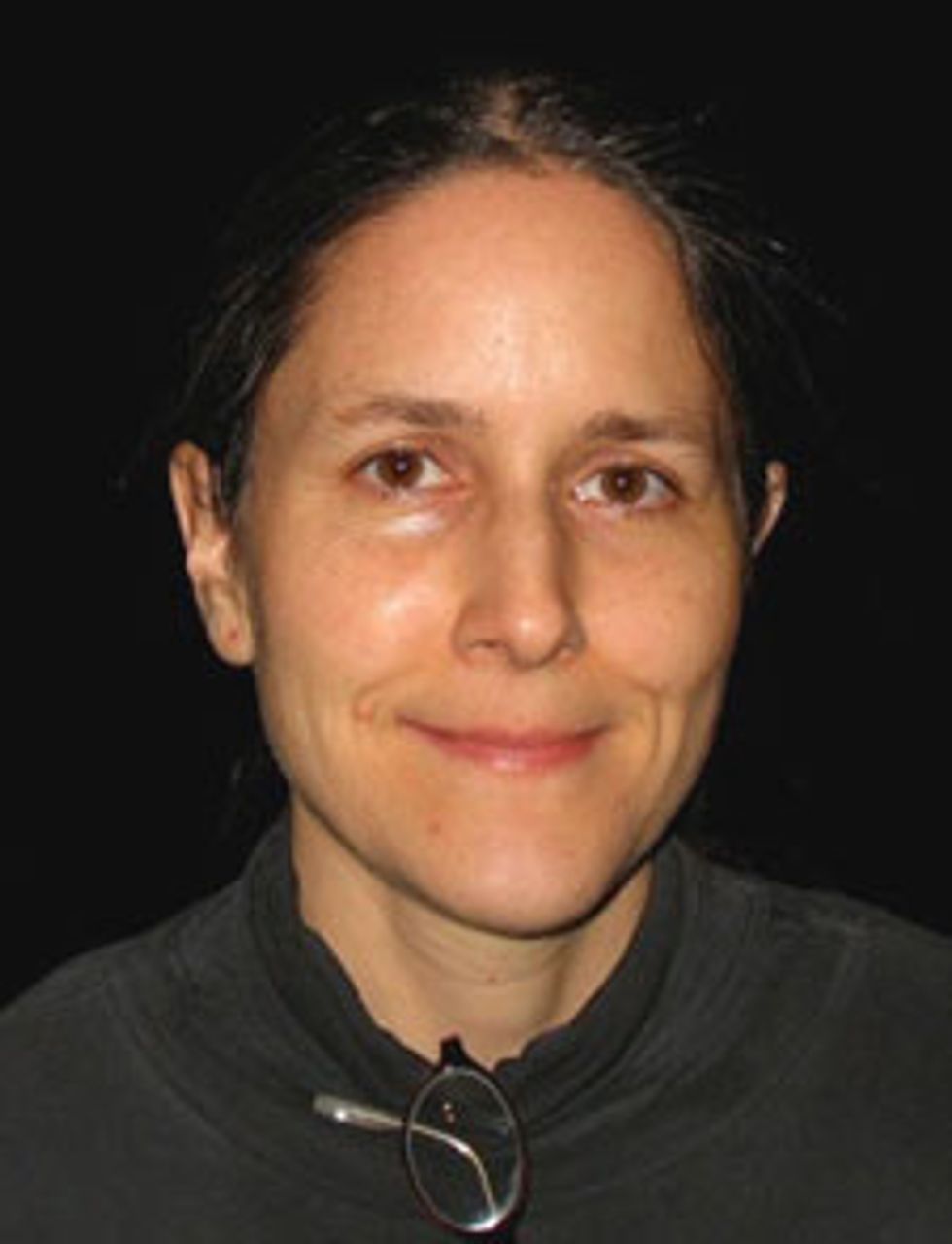 Ida, amateur violinist
Ida, amateur violinistIda, an amateur violinist, traveled from Ann Arbor to hear the DSO musicians. “The musicians are the symphony, they are bringing in the audiences and doing the work,” she said. “Management are the non-producers. You go into a factory and it is the same thing. If there are pay cuts, management should take the biggest cut.
“What would life be like without music? You can’t put a dollar value on it. I look up to these players. They put their whole life into their craft.
“If you look at the bigger picture, orchestra members should make more than pop stars—if you take the amount of work and dedication, these people earn every penny they make.
“When I was young, my mother had all the classics on the radio; we went to the symphony, that gave me inspiration to keep playing. Music is a language that is so powerful words cannot convey it.”
“There is a lack of exposure to classical music. You need to expose the young people to keep the symphonies going.”
